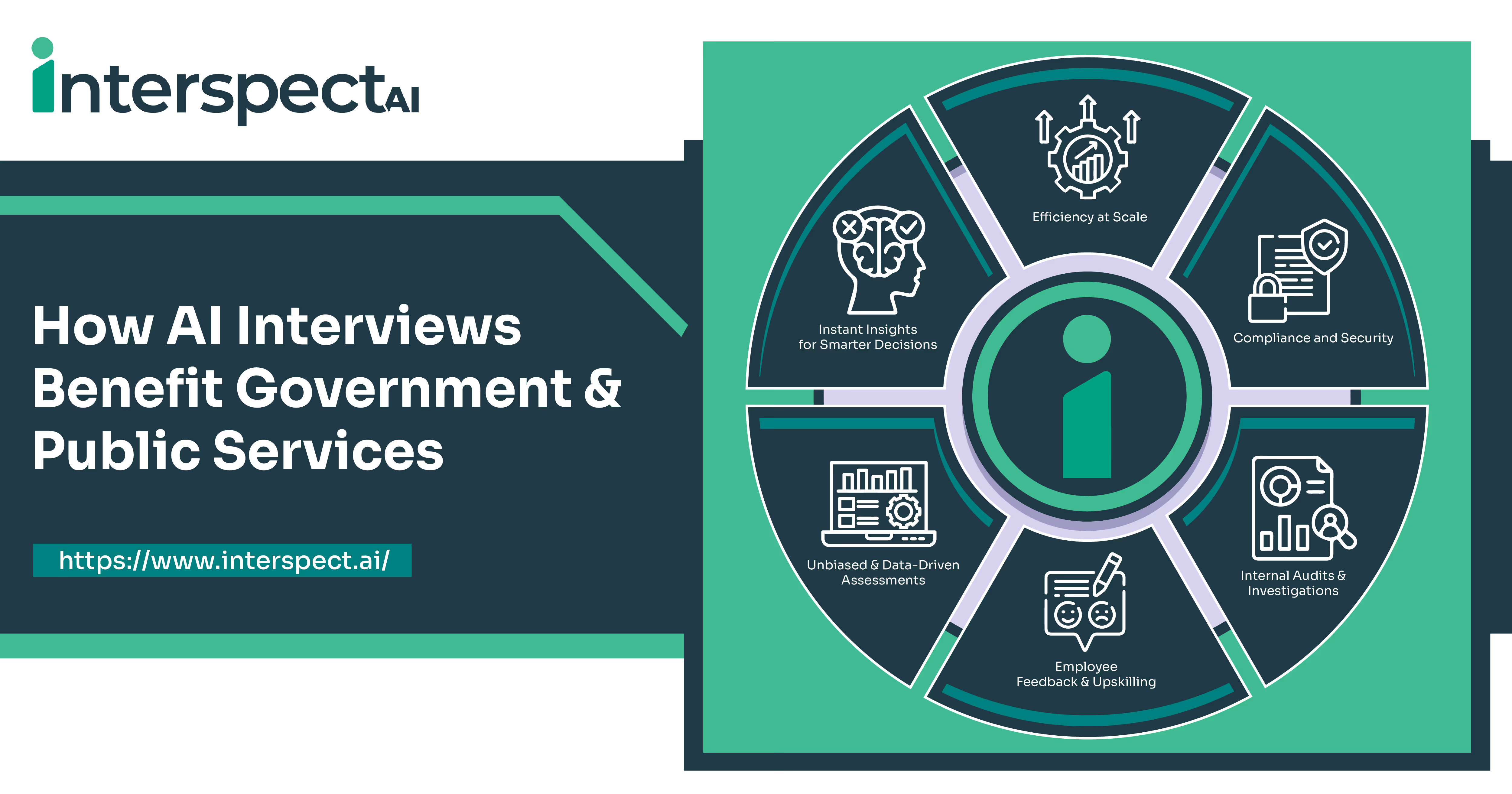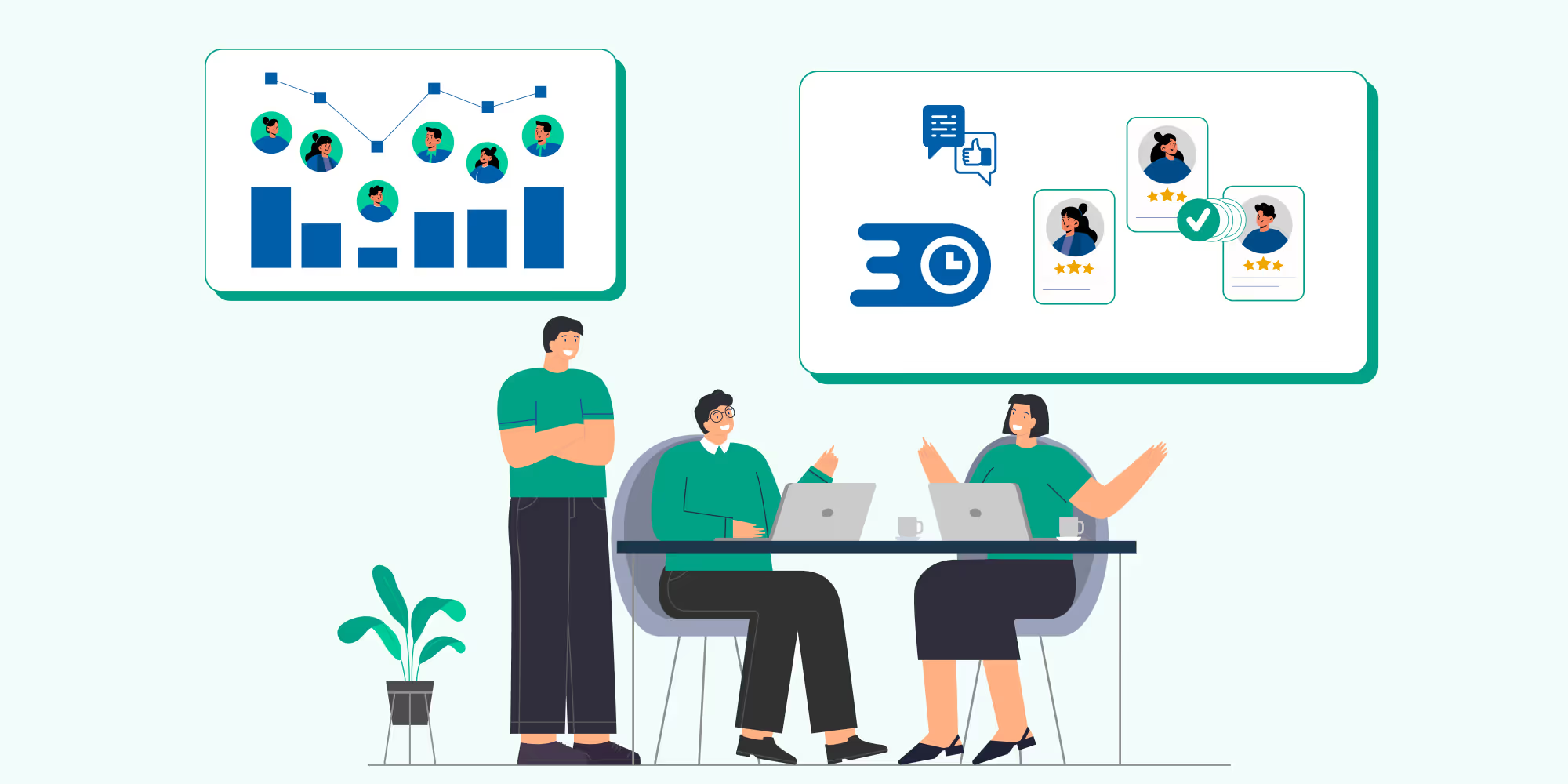Can Interview Data Predict Employee Success? (Spoiler - Yes)


.avif)
Even with the best resumes shortlisted and smoothest interviews, recruitment can feel like a gamble.
But what if the interview itself could do more than just help you pick someone… what if it could help you predict how well they'll perform?
That’s exactly what the smartest companies are starting to do using AI agents. More than just assessing candidates, they're extracting data from interviews to forecast performance, retention, and even future growth.
And the results are surprisingly accurate.
Let’s break it down.
What is “interview data,” really?
Interview data isn’t just about scores or gut feelings. It includes measurable, structured signals such as:
- How clearly a candidate answers questions
- How they structure their thinking
- Behavorial traits (confidence, humility, collaboration)
- Speech patterns, word choice, and tone
- Time taken to respond
- Relevance of examples
- Consistency with resume or application
- Real-time reactions to follow-ups
And when interviews are run through conversational AI or video-based platforms, these signals can be quantified and analyzed, objectively.
Why interview data matters more than ever
Resumes might lie, references are often biased, and a 45-minute conversation isn’t always enough to gauge long-term success.
But data doesn’t lie. And with the right systems in place, interview data can reveal patterns that correlate directly with outcomes like:
- Job performance
- Cultural alignment
- Training needs
- Leadership potential
- Likelihood to stay
In fact, a study found that structured interviews that capture and score behavorial data were twice as effective at predicting performance compared to unstructured interviews.
How AI helps in getting this goldmine
Most hiring managers aren’t sitting there scoring body language or linguistic complexity in real-time. And they shouldn’t have to.
AI-powered interview platforms can automatically:
- Transcribe and analyze every interview
- Score responses for clarity, structure, and relevance
- Identify soft skills using natural language processing
- Compare candidates to top performer benchmarks
- Highlight red flags (like evasiveness or inconsistency)
The goal isn’t to replace humans. It’s to help them make better, more consistent decisions using deeper, unbiased insight.
What this looks like in practice
Let’s say you’re hiring for a customer success role.
You use a platform like SpectraHire that runs interviews with conversational intelligence. Each candidate is asked the same (or similar, depending on the settings that the recruiter set) of structured questions.
Here’s what you’re able to extract from the interview data:
- Empathy & communication - Does the candidate use inclusive language? Do they address the customer’s feelings before jumping to a solution?
- Problem-solving - Are they giving specific, logical responses, or vague answers with buzzwords?
- Coachability - How do they respond to follow-up questions or nudges?
Once hired, these same markers are tracked alongside real performance data, building a feedback loop that makes your future interviews even better at predicting success.
It’s not magic. It’s just data meeting context.
Benefits of using interview data this way
.avif)
1. Fewer wrong hires
When interviews are scored against what actually leads to success in a role, hiring becomes less subjective, and less risky.
2. Faster onboarding
If interview data reveals someone needs support with certain skills, you can build that into their first 30-60-90 day plan.
3. Better internal mobility
Once you know the behavioral traits that lead to success in each role, you can use interview data to place internal talent more effectively.
4. Improved DEI outcomes
By analyzing patterns across interviews, you can spot and address hidden bias or systemic issues in your hiring funnel.
But, does it really work?
Yes. When done right.
According to a report from McKinsey, companies that use people analytics to inform talent decisions are more likely to outperform their competitors in productivity, employee satisfaction, and retention.
And interview data - especially from structured, repeatable formats - is one of the richest sources of that insight.
What’s the bottom line?
We’re moving from “Who impressed us in the interview?” to “Who showed the signals that predict success in this role, in this environment?”
Interview data, when captured and used ethically, allows small teams to hire like enterprise giants, and lets big companies scale human decisions without losing the nuance.
And SpectraHire is making this possible for companies of all sizes.
Subscribe to The InterspectAI Blog


%201.svg)






